Ruby Reid was an environmentalist from an early age, but she never expected to become a double climate refugee. “I’ve been concerned about climate change since I was a tiny kid. I had the book 50 Things Kids Can Do to Save the World and I did all of them.” As an adult, when she and her partner, Chris, decided to start a small urban homestead in Oregon, their focus was on self-sufficiency, stewarding the land, and, soon, growing fresh food for the community. They quickly began selling out of their homegrown pickles and produce, and made the decision to expand with a larger off-grid farm.
Farming in the Time of Climate Change
Their farm, Valhalla Organics, was growing beautifully thanks to the love and hard work they put into it until a devastating wildfire struck in 2020. The fire took their home and the mini-farm—sending thousands of dollars of produce and all their hard work up in flames.
Heartbroken but undeterred, Ruby and Chris moved closer to their off-grid farm and focused their energy on rebuilding the business and their lives. However, it wasn’t long before climate disaster struck again when, in June of 2021, they lost everything to another wildfire. This time, relocating was not a mere conversation but an immediate decision. They looked at a map of the United States, considered where it would be safest to live and farm as the climate continues to change, and purchased a property across the country in a beautiful and still largely wild area of Virginia.
A New Chapter in Virginia
Their new home came with many pleasant surprises. “I hadn’t seen a monarch for four to five years in Oregon,” Ruby recalled, “and in Virginia they were just all over our marigold blossoms, which we had planted with our cucumbers as companion plants to encourage pollinators and deter garden pests.” Along with monarchs, she spotted many swallowtail butterflies, bumblebees, and other pollinators at the new farm. Inspired by their presence and the magic of pollination, Ruby began to consider what she could do for the pollinators in her area. She was especially fascinated by a native blueberry bee that has co-evolved with the southern rabbiteye blueberry bush.
Realizing that a steep hill on their land would make for a perfect pollinator habitat, Ruby and Chris began envisioning a blueberry hill that could serve as a food source for these native bees. When they considered how to fund this vision, Ruby remembered that, several years ago, The Pollination Project had funded a “buzzway” in Oregon’s Rogue Valley — a project that created a continuous pathway for pollinators. Ruby and Chris submitted an application for the project “Native Blueberries for Native Bumblebees,” which was selected for a TPP grant to kickstart their vision.
A Haven for Pollinators
With spring in the air, Ruby and Chris got to work preparing the land and, although it meant a two-hour drive, found a local small business that sold the blueberry bushes. As Ruby explained, it was important to them to purchase from a local seller rather than a big box store. Mindful actions like this illustrate Ruby and Chris’ heartivist approach to their work, creating a project that has positive ripple effects that reach far beyond just the pollinators on their farm. To this end, they are documenting their journey in a series called “Blueberries for Bumblebees” on YouTube. Through this series, they will share their progress and give advice on how to start your own blueberry and bumblebee garden. Since blueberries also grow well in containers, they have the potential to feed pollinators and people in both urban and rural areas. Ruby and Chris hope that, with this video series, their farm can be a teaching tool to create a more pollinator-friendly world.
Despite all of the challenges they have faced, Ruby and Chris are determined to continue pursuing their dream of growing food in a way that sustains their community and the ecosystem. Reflecting on their long road, Ruby explained, “We were given every opportunity to quit or to fail but no one wants this more than us.” Ruby and Chris have created a beautiful example of adaptability and perseverance in the face of a changing climate. Their farm—now in its third life—is growing deep roots in the Virginian soil and quickly transforming into a haven for local pollinators.
Join Us
If you are inspired by this work and have an idea for a project that addresses an issue that you are passionate about, we’d like to invite you to submit an application and together we will build a better, more compassionate future!
If you would like to support the work of more changemakers like this around the world, please visit our donation page and be a part of the change today!
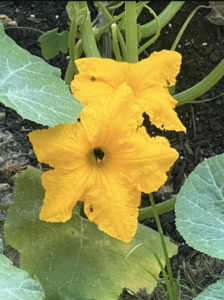
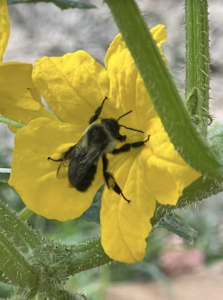
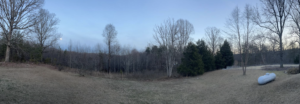
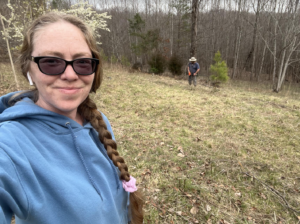
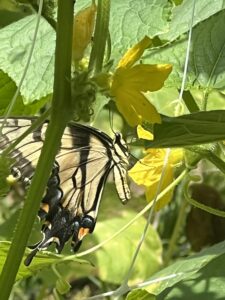
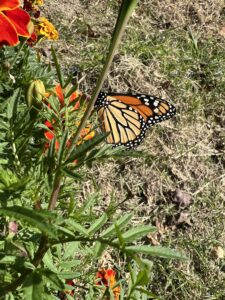
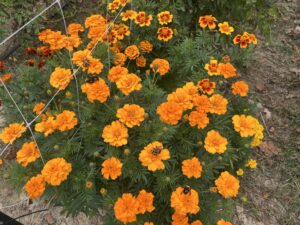
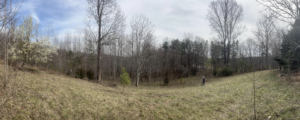

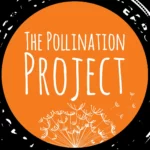
![Monica Wang, a graduate of Yantai University in China, founded Xiaobu Vegan to promote veganism in her homeland. Having grown up in Guangxi with little early connection to animals, her perspective changed after moving to Shanghai and working at Plant Based Consulting. Her vegan journey began alongside rescuing two cats and a Japanese Akita, Meng Meng.
Xiaobu Vegan, established in 2020, uses educational videos, restaurant collaborations, and initiatives like the "Vegan Challenge" to advocate for plant-based diets. Supported by The Pollination Project, the organization aims to influence dietary habits and encourage compassion through its growing platform.
Read more on our website👇
[https://thepollinationproject.org/would-you-eat-your-best-friend]
#xbvegan #vegan #veganchina #animaladvocacy #animalrights #compassion #china #heartivism @animalchangemakers](https://thepollinationproject.org/wp-content/plugins/instagram-feed-pro/img/placeholder.png)